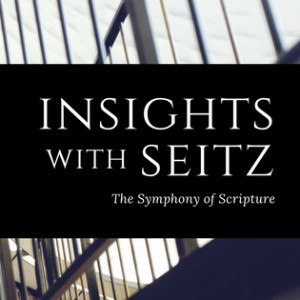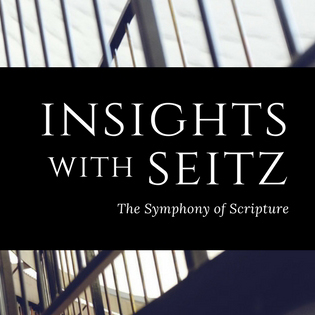Episodes

Wednesday Nov 18, 2020
Third Sunday in Lent, March 7th, 2021
Wednesday Nov 18, 2020
Wednesday Nov 18, 2020
Upon leaving Mark’s Gospel for John, we enter a terrain with its own special features. Chief among them is Jesus’ confrontation with Jewish religious leaders at an earlier point than the synoptics. Whether the synoptics knew of things like earlier visits by Jesus for Passover, but preferred to let the emphasis fall on the final Passover encounter, with Last Supper, Trial and Crucifixion, we cannot know.
But what this does allow is for John’s use at the Lenten season, where our attention is on Jesus’ decision to go to Jerusalem for a final time, by giving us additional insight into the character of his confrontation with religious authorities there. So today we are in the temple during Passover, and witness Jesus driving out those who changed money so that animals could be bought for sacrifice, by pilgrims coming from regions of the Jewish diaspora. Matthew, Mark and Luke report that at the final Passover of his life he entered the temple and “drove out those who sold” as Luke has it in his laconic version of just two verses, whereupon he began his teaching there—so Luke--and healing—so Matthew. Jeremiah is the OT text quoted by Jesus, a house of prayer has become a den of robbers.
It has been convincingly argued that John has been written for its own sake but also for readers who know Mark. At a number of points, parenthetical comments he makes presuppose a reader with knowledge of the narrative line in Mark, to which he is making additions.
So he splices in things in order to augment, supplement, emphasize. This early encounter in the temple during Passover culminates in what is taken to be a prediction of the temple’s destruction, which is consistent with the charges brought against him at his trial, which the synoptics all report. In John’s gospel, moreover, the culminating incentive for hostility and death seeking comes in the wake of the raising of Lazarus, and the fear that “everyone will now believe in him.” The end of Chapter 11 is crystal clear on this point, and for John, it is here that Jesus turns to Jerusalem for a final time, being anointed by Mary before entering the city. So the encounter at Passover is but the first in a series, which we learn was retrospectively understood in its full significance as a prediction of his own death and not so much the temple’s destruction.
“But he was speaking of the temple of his body.”
Our readings for today are less straightforward in the way they work together. Or more subtle. I take that to be a good thing, asking us to probe, stop and ponder and pray and meditate. Hear, read, mark, learn, inwardly digest – as Thomas Cranmer wrote about how scripture gets into, finds it path into us, as God’s word.
Let’s identify the links and then tease them out.
Jesus action in the temple brings to mind, to the scripture-marinated disciples, Psalm 69:9 – a psalm which otherwise is important elsewhere as prefiguring Jesus’ suffering. “They gave me poison for food and for my thirst vinegar to drink.” The verse that rises up in them as they witness Jesus’s actions in the temple is “zeal for thy house will consume me.”
In the ten commandments God is a jealous God, a God who is to be first and God alone. Worshipped in this spirit. Unlike all he has made and above all other claimants to be God, holy in making his commandments known. The same word in Hebrew for jealous is here as in Psalm 69. In John’s gospel it is the zeal of Jesus Christ, jealous for the temple and for the right worship of the Holy God of Mt Sinai there, in the here and now of the temple, God’s holy sanctuary. In the psalm, the righteous one is zealous to such a degree that he is all-consumed in his efforts. Like the all-consuming fire of God’s holiness. Yet the psalm also makes it clear that this zeal of the righteous one provokes attack. The insults of those that insult thee fall upon me, the verse continues. Perhaps this is what is meant in the final line from John for today. The further confirmation of the scriptures and Jesus word together is remembered by the disciples who witnessed the encounter, and it is just this: Jesus would not just be all consuming in his zeal, like God himself, in putting right what false worshippers have distorted. In addition, because of his zeal in this cause, the insults against God which he condemns and overturns would fall on him to his death. The temple where God dwells, which the temple on earth was to be by God’s holy design, is embodied in his son. “After he was raised from the dead, his disciples remembered that he had said this.”
In 1st Corinthians Paul speaks of the power of this same cross in leveling and reconfiguring what humanity means by wisdom. Jews demand signs, he says, and Greeks desire wisdom. When Jesus acts with righteous authority in overturning the exchange tables, Jews who were present asked what sign he might give for doing this. They apparently do not dispute the action for its own sake, but instead ask for some sign for why he is the one sent by God for this kind of action.
Now this is a statement rife with possible meaning. Jesus does signs in John’s Gospel. He has just done one, his first, the turning of water into wine. Like Moses’ producing frogs, hail, grasshoppers, the death of the first born, or the birth of Immanuel, the sign given to Ahaz by Isaiah, the sign demanded of Jesus would be something concrete and present. Following the turning of the water into wine he will heal the official’s son on death’s door. And the man born blind. And call Lazarus from the tomb. Concrete signs and wonders.
Here there is a sign which he gives in response, but it is enigmatic. Destroy this temple and in three days I will raise it up. Enignmatic and having to do with the future yet to unfold. Not unlike the sign God gives to Moses at the burning bush, which is the eventual worship of God at the mountain where he now is, yet after the ordeal of the confrontation with Pharaoh yet to come. Jesus is speaking of himself as a sign, indeed the ultimate sign, his body as the temple of God’s holiness, which will be destroyed but which will be raised up again, after three days. For those demanding signs as proof when they do not see the actions for what they are, the sign given by Jesus is himself. As Paul puts it, Christ crucified is the sign proclaimed by God himself, whose weakness is stronger than human strength. Whose wisdom is the prefect law of the LORD, reviving the soul, giving wisdom to the innocent.
The symphonic links across the readings may be subtle but they are profound. Wisdom is to be found in God’s law, which is embodied in the jealous obedience of Jesus, whose life is the sign given by God for new life, upsetting what we demand but showing us him for whom we long. The scriptures bear witness to him. Some things we can only understand over time, as we hear, read, mark, learn and inwardly digest them, just as did his first disciples. Even present with him, their vision was at best partial. But after he had risen from the dead the scriptures would come alongside the words he spoke as remembered and shown them both redolent of life giving truth and the wisdom for which the psalmist longs.


No comments yet. Be the first to say something!